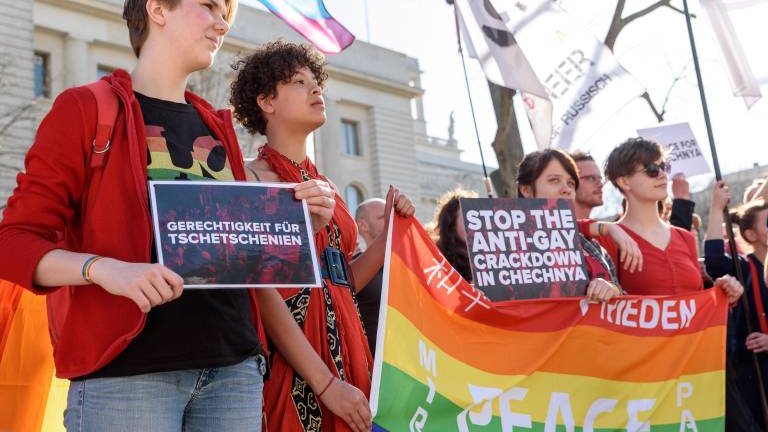Increasing violence and persecution: new data on the situation for LGBTIQ people in Europe

According to a survey released by the European Union’s human rights agency on Tuesday, discrimination against lesbian, gay, bisexual, transgender, intersex, and queer (LGBTIQ) individuals in the EU has declined. However, there has been a troubling increase in physical and sexual attacks directed at this community compared to three years ago.
Research shows: Discrimination has decreased in the EU, but violence against LGBTQ+ people has increased
A report released by the On Tuesday, the EU Fundamental Rights Agency (FRA) announced that an online survey carried out between June, July, and August 2023, involving over 100,000 individuals who identified as LGBTIQ, showed few variances compared to a prior similar study conducted three years prior.More LGBTIQ people in Europe are now speaking openly about their identity. However, they face increased levels of violence, harassment and discrimination compared to the past,” the Vienna
In a statement regarding the report, the FRA commented. The adjusted data, which allows comparisons between different surveys, shows an increase in the number of
individuals hailing from the 27 member states of the EU who showed that they had experienced physical or sexual assaults over the past five years because of their LGBTIQ identity. The share of such cases increased from 11% according to the previous survey to 14%.
The lowest rates in the EU are recorded in Bulgaria (18%) and Latvia (17%), with the highest number of incidents reported among intersex and transgender people.

In the year preceding the in the most recent survey, around 36% of respondents across the EU reported experiencing discrimination in various aspects of their lives due to their LGBTIQ identity. This percentage reflects a decrease from 42% in the previous survey. Bulgaria and Cyprus showed the highest levels, both countries with 48%. Among those most feeling discriminated against were intersex people (61%) and transgender people (54%), which were the only categories where the proportion of such responses exceeded 50%.
Reported areas where discrimination occurred include labor, education, health care, interactions with government agencies, and service in Stores, restaurants, bars , and nightlife establishments. The survey also included European Union aspirants such as Albania, North Macedonia, and Serbia. “Open individuals within the LGBTIQ community expression in Europe should not be difficult. While there are some signs of improvement, bullying, harassment and violence continue to be serious problems”-FRA Director Sirpa Rautio noted in her statement
LGBT discrimination in Europe: legal issues and social consequences
In Europe, the LGBT community faces various forms of discrimination at different levels of society. One of the most common problems is the lack of legal protection and recognition of same-sex marriages in many countries. Some states still have laws that prohibit or restrict the rights of the LGBT community, resulting in exclusion from both social and legal spheres.
Prejudice can also occur at the employment level, where individuals within the LGBT community might encounter job denials or poor working conditions because of their sexual orientation or gender identity.

Harassment and violence can also occur in schools and public places for these same reasons.
In addition, individuals in the LGBT community may encounter negative attitudes from family, friends and society at large, leading to social isolation and psychological problems.
Despite the significant efforts of many human rights organizations and states, combating discrimination against the LGBT community in Europe remains an important task that requires further efforts and changes in legislation and public consciousness.
